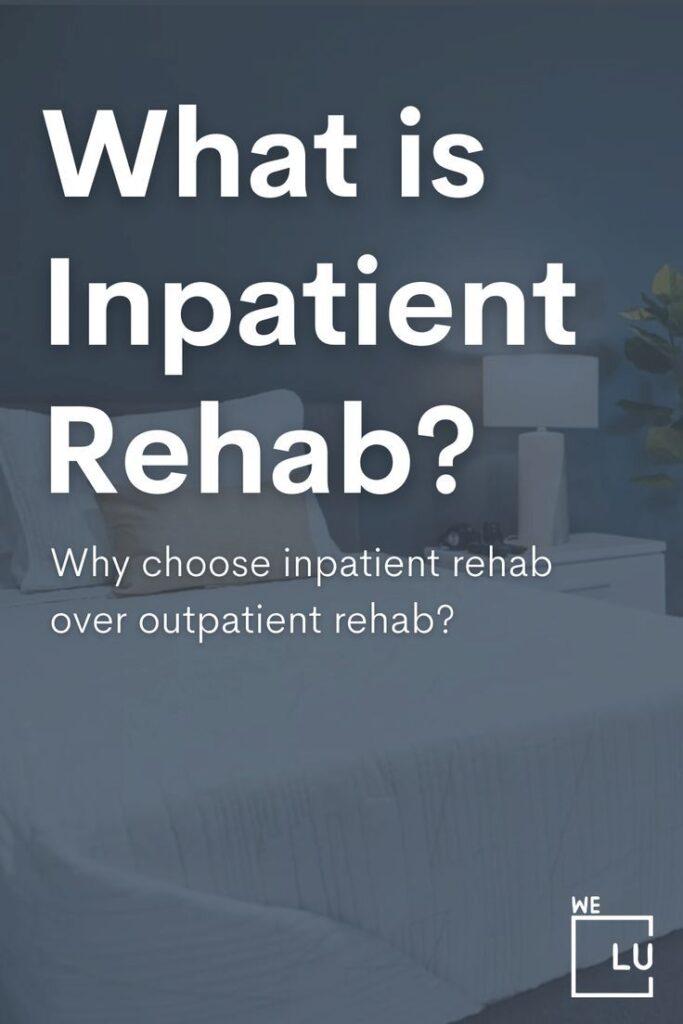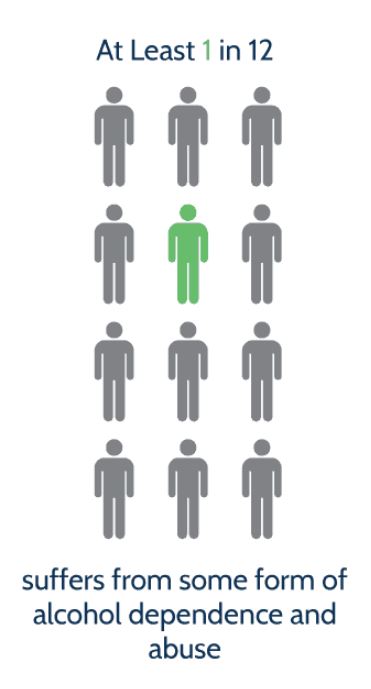Is Cyclobenzaprine Addictive?
Cyclobenzaprine, the muscle relaxant commonly marketed under the brand name Flexeril, is not considered addictive in the same way as substances like opioids or benzodiazepines. It does not produce the same intense euphoria or craving characteristic of addictive drugs.
Cyclobenzaprine works by depressing the central nervous system, which helps relieve muscle spasms and associated pain. Although it can have sedative effects, leading some individuals to misuse it for recreational purposes, the risk of developing a true addiction to cyclobenzaprine is generally low.
However, it is important to note that cyclobenzaprine can still cause dependence and withdrawal symptoms if used excessively or for an extended period. Abruptly discontinuing its use after prolonged use can lead to withdrawal symptoms such as headaches, nausea, muscle stiffness, and anxiety. Therefore, it is advisable to follow the prescribed dosage and duration of treatment as directed by a healthcare professional.
As with any medication, it is crucial to communicate openly with your doctor about any concerns or potential risks associated with cyclobenzaprine. They can provide personalized guidance based on your medical history and help determine the most appropriate treatment for your condition.
Cyclobenzaprine Addiction
Cyclobenzaprine, also known by the brand name Flexeril, is not considered highly addictive. It does not produce the same level of dependence and craving as substances like opioids or benzodiazepines. However, it is important to note that cyclobenzaprine can still lead to physical dependence and withdrawal symptoms if used improperly or for an extended period.
When prescribed by a healthcare professional, cyclobenzaprine is generally safe and effective for the short-term treatment of muscle spasms. It works by affecting the central nervous system to relax muscles. Some individuals may misuse cyclobenzaprine by taking higher doses than prescribed or using it for recreational purposes. This can increase the risk of developing dependence and experiencing withdrawal symptoms.
Abruptly stopping cyclobenzaprine after prolonged use can lead to withdrawal symptoms such as headaches, nausea, muscle stiffness, and anxiety. To minimize the potential for dependence and withdrawal, following the prescribed dosage and duration of treatment is essential.
Discussing your concerns about cyclobenzaprine addiction or its potential misuse with your healthcare provider is crucial. They can provide appropriate guidance, monitor your usage, and adjust your treatment plan. Using medications as directed and seeking professional advice when needed is always recommended.
What Is Cyclobenzaprine And Is It A Narcotic?
Cyclobenzaprine is a muscle relaxant commonly prescribed for the short-term treatment of muscle spasms and associated pain. It is marketed under various brand names, including Flexeril. Cyclobenzaprine affects the central nervous system to help relax muscles and relieve discomfort.
While cyclobenzaprine is not classified as a narcotic, it can have sedative effects and may cause drowsiness or dizziness. This is why it is important to use cyclobenzaprine as prescribed and avoid activities requiring alertness until you understand how the medication affects you. Cyclobenzaprine is structurally distinct from narcotics (opioids) and does not have the same potential for addiction or abuse as those substances.
However, it is still essential to take cyclobenzaprine responsibly and follow the recommended dosage and duration of treatment as advised by your healthcare professional. Suppose you have concerns about the medication or its potential for misuse. In that case, it is best to consult your doctor, who can provide specific guidance based on your needs and medical history.
Skip To:
Learn More:
- Is Flexeril Addictive? Symptoms, Side Effects & Treatment
- Flexeril and Alcohol, What Are The Dangers and The Effects? (Cyclobenzaprine)
- What Is A Prescription Pill Detox Program?
- Prescription Drugs Addiction Causes & Symptoms
- 10 Most Abused Prescription Drugs In The US
- Withdrawal Symptoms of Prescription Drugs
- Risks of Mixing Prescription Drugs With Alcohol
Get Help. Get Better. Get Your Life Back.
Searching for Accredited Drug and Alcohol Rehab Centers Near You?
Even if you have failed previously and relapsed, or are in the middle of a difficult crisis, we stand ready to support you. Our trusted behavioral health specialists will not give up on you. When you feel ready or just want someone to speak to about therapy alternatives to change your life call us. Even if we cannot assist you, we will lead you to wherever you can get support. There is no obligation. Call our hotline today.
(844) 597-1011Is Cyclobenzaprine Addictive? Popular Flexeril Addiction FAQs
-
Is Cyclobenzaprine 10 Mg Tablet A Narcotic?
No, Cyclobenzaprine 10 mg tablet is not classified as a narcotic. It is a muscle relaxant used for the short-term treatment of muscle spasms and associated pain.
-
Is Flexeril A Narcotic Or Addictive?
Flexeril (cyclobenzaprine) is not classified as a narcotic. It is a muscle relaxant and does not possess the same addictive potential as narcotics. However, like any medication, it should be used as prescribed to minimize the risk of adverse effects and dependence.
-
Is Flexeril A Narcotic?
No, Flexeril (cyclobenzaprine) is not a narcotic. It is a muscle relaxant that depletes the central nervous system to relieve muscle spasms and related pain. Although it can cause sedative effects, it does not carry the same addictive properties as narcotics. It is important to follow the prescribed dosage and treatment duration to ensure Flexeril’s safe and effective use.
Cyclobenzaprine Addiction Facts
Cyclobenzaprine Addiction Overview
Flexeril (cyclobenzaprine) is a muscle relaxant commonly prescribed to alleviate muscle spasms and discomfort associated with musculoskeletal conditions. While Flexeril is not considered highly addictive, it can still lead to dependence and abuse if not used as directed.
Prolonged or misused Flexeril can result in withdrawal symptoms and other adverse effects. Individuals need to follow their healthcare provider’s instructions, use the medication as prescribed, and communicate any concerns or changes in symptoms promptly. Consulting a healthcare professional is crucial for proper guidance and monitoring when using Flexeril to minimize the risk of addiction.
Cyclobenzaprine Addiction Signs
- Increasing Tolerance: Individuals may develop a tolerance to Flexeril over time, requiring higher doses to achieve the desired effects. This can be an indication of addiction.
- Continued Use Despite Negative Consequences: Despite experiencing adverse effects on physical health, relationships, work, or other areas of life, individuals may continue to use Flexeril compulsively.
- Preoccupation with Flexeril: An individual addicted to Flexeril may spend significant time obtaining the drug, using it, or thinking about it. This preoccupation can interfere with daily responsibilities and activities.
- Loss of Control: People with a Flexeril addiction often find controlling or limiting their drug use challenging. They may have unsuccessful attempts to cut down or quit using Flexeril.
- Withdrawal Symptoms: When attempting to stop or reduce the use of Flexeril, individuals may experience withdrawal symptoms such as muscle aches, restlessness, irritability, anxiety, insomnia, sweating, and nausea.
- Neglecting Other Activities: As Flexeril becomes the primary focus, individuals may neglect activities they previously enjoyed, or that were important to them, such as hobbies, socializing, or work commitments.
Cyclobenzaprine Addiction Treatment
Flexeril addiction treatment typically involves a comprehensive approach that addresses both addiction’s physical and psychological aspects. Here are some common treatment options:
- Medical Detoxification: If an individual has developed a dependence on Flexeril, a medically supervised detoxification process may be necessary to manage withdrawal symptoms safely. Medical professionals can gradually taper the dosage during this phase to minimize discomfort and ensure a safe transition.
- Behavioral Therapy: Various forms of therapy, such as cognitive-behavioral therapy (CBT), can be beneficial in treating Flexeril addiction. These therapies help individuals identify and modify unhealthy thoughts, behaviors, and triggers associated with drug use and develop effective coping strategies.
- Support Groups: Participating in support groups, such as Narcotics Anonymous (NA), can provide individuals with a sense of community, understanding, and encouragement. Sharing experiences and learning from others who have overcome addiction can be instrumental in the recovery process.
- Individual Counseling: Individual counseling sessions with a qualified therapist or counselor can provide a safe and confidential space to explore underlying issues that may have contributed to drug abuse. These sessions can help individuals develop healthier coping mechanisms and gain insights into their addiction.
- Dual Diagnosis Treatment: If a co-occurring mental health disorder is present alongside Flexeril addiction, integrated treatment that addresses both conditions simultaneously is crucial. This approach ensures that individuals receive comprehensive care for their physical and psychological well-being.
- Medication-Assisted Treatment (MAT): In some cases, medications may be used as part of a comprehensive treatment plan to help manage cravings and withdrawal symptoms. However, there are no specific medications approved for treating Flexeril addiction, so the use of medications would be based on individual circumstances and the presence of other substances.
Cyclobenzaprine Addiction Statistics
Understanding the scope and impact of Flexeril (cyclobenzaprine) addiction is essential for addressing this issue. By examining Flexeril addiction statistics, we can gain insights into the prevalence, trends, and consequences associated with the misuse and abuse of this medication. These statistics shed light on the challenges faced by individuals and communities affected by Flexeril addiction, highlighting the need for awareness, prevention, and effective treatment strategies.
0.2%
Approximately 0.2% of individuals aged 12 and older in the United States reported misusing cyclobenzaprine (the generic name for Flexeril) in 2018.
Source: SAMHSA
2003 to 2015
JAMA Network Open found that the misuse of muscle relaxants, including cyclobenzaprine, increased significantly during this period.
Source: JAMA Network Open
79.1%
From 2004 to 2015, cyclobenzaprine-related emergency department visits increased by 79.1%.
Source: Journal of Addiction Medicine

Get Your Life Back
Find Hope & Recovery. Get Safe Comfortable Detox, Addiction Rehab & Dual Diagnosis Trused Care.
7/365 Line (844) 597-1011Can You Get Addicted To Cyclobenzaprine?
While cyclobenzaprine (Flexeril) is not considered highly addictive, it is still possible to develop dependence and experience withdrawal symptoms with prolonged or improper use. Here are some risk factors and signs associated with cyclobenzaprine addiction:
Risk Factors:
- Misuse or abuse: Taking cyclobenzaprine in higher doses or more frequently than prescribed increases the risk of addiction.
- History of substance abuse: Individuals with a history of substance abuse or addiction may be more susceptible to developing a cyclobenzaprine addiction.
- Concurrent substance use: Combining cyclobenzaprine with other substances, such as alcohol or opioids, can increase the risk of addiction.
- Psychological factors: Certain psychological factors, such as a history of addiction, mental health disorders, or seeking euphoria or sedation, may increase the likelihood of developing an addiction.
Signs of Addiction:
- Craving: A strong desire or compulsion to use cyclobenzaprine, even when not necessary for medical purposes.
- Loss of control: Inability to adhere to prescribed dosages or attempts to obtain cyclobenzaprine from multiple sources.
- Increased tolerance: Needing higher doses of cyclobenzaprine to achieve the desired effects once achieved with lower doses.
- Withdrawal symptoms: Experiencing physical or psychological symptoms upon reducing or discontinuing cyclobenzaprine, such as headaches, nausea, restlessness, or anxiety.
- Neglecting responsibilities: Prioritizing cyclobenzaprine use over important obligations or neglecting personal or professional responsibilities.
- Continued use despite negative consequences: Using cyclobenzaprine despite experiencing adverse effects, such as health issues, strained relationships, or financial problems.
It’s important to note that while addiction to cyclobenzaprine is relatively rare, dependence and misuse can still occur. If you have concerns about cyclobenzaprine addiction, discussing them with your healthcare provider for guidance and support is advisable.
First-class Facilities & Amenities
Trusted Integrated Addiction & Mental Health Rehabilitation Treatment
Rehab Centers TourEstablished Addiction Centers. Serene Private Facilities. Inpatient rehab programs vary.
Addiction Helpline (844) 597-1011Comprehensive recovery success experience, backed by a Team w/ History of:
15+
Years of Unified Experience
100s
5-Star Reviews Across Our Centers
10K
Recovery Success Stories Across Our Network
- Low Patient to Therapist Ratio
- Onsite Medical Detox Center
- Comprehensive Dual-Diagnosis Treatment
- Complimentary Family & Alumni Programs
- Alumni Coaching, Recovery & Personal Development Events
Cyclobenzaprine Addiction Treatments
Treating cyclobenzaprine addiction typically involves a comprehensive approach that may include the following interventions:
- Medical Detoxification: A supervised medical detoxification process may be necessary if an individual has developed a dependence on cyclobenzaprine. This involves gradually tapering the dosage under medical supervision to minimize withdrawal symptoms.
- Behavioral Therapies: Various behavioral therapies can be effective in treating cyclobenzaprine addiction. Cognitive-behavioral therapy (CBT) helps individuals identify and modify unhealthy thought patterns and behaviors associated with drug use. Contingency management uses positive reinforcement to encourage abstinence and adherence to treatment goals.
- Support Groups: Participating in support groups, such as Narcotics Anonymous (NA), can provide individuals with a sense of community and support from others who have experienced addiction. Sharing experiences, coping strategies, and maintaining accountability can benefit recovery.
- Individual Counseling: Individual counseling with a licensed therapist or addiction specialist can help address underlying psychological factors contributing to addiction. It provides a safe space for exploring emotions, identifying triggers, and developing coping mechanisms to prevent relapse.

- Medication-Assisted Treatment (MAT): While no specific medications are approved for treating cyclobenzaprine addiction, in some cases, medications may be prescribed to manage withdrawal symptoms or address co-occurring mental health conditions contributing to addiction.
- Lifestyle Changes and Aftercare: Positive lifestyle changes, such as adopting healthy habits, improving social support networks, and engaging in recreational activities, can support long-term recovery. Aftercare programs, such as continued counseling, support groups, and regular check-ins with healthcare providers, are essential for maintaining sobriety and preventing relapse.
It’s crucial for individuals seeking treatment to consult with healthcare professionals or addiction specialists who can assess their specific needs and develop a personalized treatment plan. Combining different therapies and ongoing support is often the most effective approach for addressing cyclobenzaprine addiction.
Specialized, Accredited, 5-Star Reviewed, Evidence-based Addiction & Mental Health Programs. Complete Behavioral Health Inpatient Rehab, Detox plus Co-occuring Disorders Therapy.
CALL(844) 597-1011End the Addiction Pain. End the Emotional Rollercoaster. Get Your Life Back. Start Drug, Alcohol & Dual Diagnosis Mental Health Treatment Now. Get Free, No-obligation Guidance by Substance Abuse Specialists Who Understand Addiction & Mental Health Recovery & Know How to Help.
We Level Up Cyclobenzaprine Addiction Dual Diagnosis Treatment
We Level Up, a highly respected rehabilitation facility, offers a comprehensive program designed for individuals grappling with an addiction to Cyclobenzaprine and concurrent mental health disorders. Recognizing the intricate connection between addiction and mental well-being, their treatment approach integrates evidence-based therapies, expert medical care, and a holistic viewpoint. At We Level Up, each person receives a personalized treatment plan tailored to address the difficulties associated with Cyclobenzaprine addiction and any underlying mental health conditions they may face.
We Level Up is dedicated to providing integrated care that fosters healing and supports long-term recovery. Their approach includes individual counseling, group therapy, behavioral therapies, and medication management. A compassionate and knowledgeable staff creates a nurturing atmosphere where individuals can explore the root causes of their addiction, develop healthy coping mechanisms, and cultivate resilience for a well-balanced and purposeful life. We Level Up’s commitment to delivering comprehensive care and their expertise in managing dual diagnosis situations establish them as a trusted option for individuals seeking specialized treatment for Cyclobenzaprine addiction and co-occurring mental health issues.
Experience Transformative Recovery at We Level Up Treatment Centers.
See our authentic success stories. Get inspired. Get the help you deserve.



Start a New Life
Begin with a free call to an addiction & behavioral health treatment advisor. Learn more about our dual-diagnosis programs. The We Level Up Treatment Center Network delivers recovery programs that vary by each treatment facility. Call to learn more.
- Personalized Care
- Caring Accountable Staff
- World-class Amenities
- Licensed & Accredited
- Renowned w/ 100s 5-Star Reviews
We’ll Call You
Watch The Prescription Drug Abuse & Prescription Medication Addiction Recovery & Sobriety Story Informative Video
Video Script
“I wanted my life back. I was a shell of a person. I wanted to be trusted; I wanted relationships back that I lost, mainly my children and family. It started innocent enough, I got into a car accident, and then I got kind of sucked into the whole, you know, medication issue with the pills. And before I knew it, I was in a cloud. I was sucked in by addiction, and with my mind, I kept thinking it was OK because a doctor was prescribing this for me, a doctor was giving me this, a doctor was giving me that.
So, I didn’t think I was doing anything wrong. Level Up supports my family and my relationships with my family, and they’ve helped me grow as a person. When I first started there, I was so intimidated and kind of scared, you know? But, they’ve taught me, they’ve kind of taught me how to come into my own. And then, you know, when I get the call from my twenty-one-year-old daughter in the middle of the day, just to say ‘I love you, Mom.’ that’s amazing.”
Jen’s Addiction Recovery Testimonial.
Search We Level Up Is Cyclobenzaprine Addictive Resources
Sources
- National Institute on Drug Abuse (NIDA) – Prescription Drug Misuse and Abuse: https://www.drugabuse.gov/publications/research-reports/misuse-prescription-drugs/overview
- Substance Abuse and Mental Health Services Administration (SAMHSA) – Prescription Drug Misuse and Abuse: https://www.samhsa.gov/
- U.S. Food and Drug Administration (FDA) – Drug Safety and Availability: Cyclobenzaprine Information: https://www.fda.gov/
- Centers for Disease Control and Prevention (CDC) – Prescription Opioid Overdose Data: https://www.cdc.gov/
- National Library of Medicine (NLM) – MedlinePlus: Cyclobenzaprine: https://medlineplus.gov/druginfo/meds/a682514.html
- National Institute on Drug Abuse (NIDA) – Principles of Drug Addiction Treatment: A Research-Based Guide: https://www.drugabuse.gov/publications/principles-drug-addiction-treatment-research-based-guide-third-edition
- National Institutes of Health (NIH) – National Institute on Drug Abuse (NIDA) – Treatment Approaches for Drug Addiction: https://www.drugabuse.gov/publications/drugfacts/treatment-approaches-drug-addiction
- SAMHSA – Find Treatment: https://www.samhsa.gov/find-treatment
- National Alliance on Mental Illness (NAMI) – Substance Use Disorders: https://www.nami.org/About-Mental-Illness/Common-with-Mental-Illness/Substance-Use-Disorders
- Office of National Drug Control Policy (ONDCP) – Prescription Drugs: https://www.whitehouse.gov/





